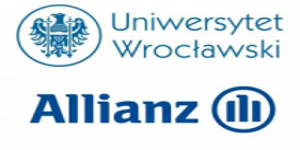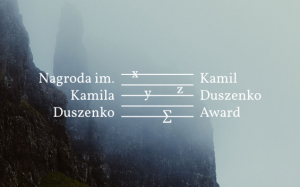Institute of Mathematics
| Harmonic analysis | |
| Research interests: | The research interests of the group concentrate on real analysis, harmonic analysis and applications of analysis in probability theory. The probabilistic researches concern stochastic equations, branching processes and branchich random walks. The analytic studies focus on discrete harmonic analysis, analytic numer theory, real analysis on Lie groups and spaces of homogenuous type, LIttlewood-Paley theory, singular and oscillating integrals, functional spaces and orthogonal polynomials. Collaborators: J.P. Anker (Orleans), P. Auscher i S. Brofferio (Orsay), Ch. Berg, J. Collamore i T. Mikosch (Copenhagen), Y. Guivarc’h (Rennes), A. Grigoryan (Bielefeld), D. Mueller (Kiel), C. Pérez (Sevilla), F. Ricci (SNS Pisa), L. Saloff-Coste (Cornell), J. Wright (Edinburgh), A. Iksanov (Kiev), A. Marynych (Kiev), G. Alsmeyer (Muenster), S. Mentemeier (Dortmund), Christopher Thiele (Bonn). |
| Team: | A. Bendikov, D. Buraczewski, W. Cygan, E. Damek, J. Dziubański, P. Głowacki, W. Hebisch, K. Kolesko, Y. Kryakin, M. Mirek, M. Paluszyński, M. Preisner, Z. Rzeszotnik, R. Szwarc, B. Trojan, R. Urban, B. Wróbel, J. Zienkiewicz |
| Partial differential equations. | |
| Research interests: | Most frequently discussed topics include: nonlocal problems (chemotaxis etc.), nonlocal diffusion operators, porous media equations, reaction-diffusion systems, equations of hydrodynamics. The group maintains long-standing scientific contacts with French and Austrian mathamaticians: J. Dolbeault, M. J. Esteban, D. Hilhorst, P. A. Markowich, Ph. Laurençot, M. Cannone, L. Brandolese, C. Imbert, R. Monneau. |
| Team | P. Biler, G. Karch, M. Krupski, A. Krzywcki, A. Raczyński, R. Stańczy, K. Tabisz, B. Wróblewski |
| Applications of probability theory | |
| Research interests: |
Research Fields/Topics:
● Gaussian processes; extreme value theory of Gaussian processes; exact
asymptotic for extrema; Pickand’s constants;
● Levy processes; extreme value theory of Levy processes; fluctuation
theory of Levy processes; reflected Levy processes; refracted Levy
processes; heavy tailed distributions;
● Markov processes; stochastic networks, queueing networks; fluid queues;
Kendall walks; speed of convergence for finite Markov chains; cut-off
phenomena; Markov chains in cryptography; MCMC; dual Markov chains;
● Point processes; Boolean models in stochastic geometry, determinantal and
permanental point processes, Gibbs point processes; correlation
inequalities; FKG inequalities; particle systems;
● Generalized convolutions; Kendall convolutions; non-commutative
convolutions; sequences of moments for convolutions;
● Financial and actuarial mathematics; Parisian ruin models; mortality
rate models; optimal detection in Levy models; copulas and Levy copulas;
mathematics of financial instruments; mathematical models for business; Collaborators: prof. Soeren Asmussen, Aarhus University, Aarhus, Denmark, prof. Franck Adekambi, University of Johannesburg, Johannesburg, SA, prof. Erik Baurdoux - London School of Economics (LSE), London, UK, prof. Bartek Blaszczyszyn, INRIA-ENS, Paris, France, prof. Hans Daduna, Hamburg University, Hamburg, Germany, prof. Ton Dieker, Columbia, New York, USA, prof. José Luis Pérez Garmendia, Department of Probability and Statistics,Centro de Investigacion en Matematicas (CIMAT) Guanajuato, Mexico. prof. Hélène Guérin, RMAR, Université de Rennes 1, Rennes Cedex, France, prof. Enkelejd Hashorva, University of Lausanne, Lausanne, Switzerland, prof. Michel prof. Tomasz J. Kozubowski, University of Nevada, Reno, USA, prof. Guenter Last, Karlsruhe Institute of Technology, Karlsruhe, Germany, prof. Michel Mandjes, University of Amsterdam, Amsterdam, Netherlands, prof. Anna K. Panorska, University of Nevada, Reno, USA prof. Jan Rosiński, University of Tennessee, Tennessee,USA prof. Kazutoshi Yamazaki, Department of Mathematics, Faculty of Engineering Science, Kansai University, Japan. |
| Team: | Tomasz Rolski, Ryszard Szekli, Krzysztof Dębicki , Marek Arendarczyk, Irmina Czarna, Barbara Jasiulis-Gołdyn, Przemysław Klusik, Paweł Lorek, Kamil Kosiński, Pawel Kawa, Wiesław Krakowiak, Bogdan Mincer, Sebastian Sydor, Michał Krawiec, Joanna Tumilewicz, Adam Kaszubowski, Piotr Markowski |
| Noncommutative probability and harmonic analysis, and quantum functional analysis. | |
| Research interests: |
Generalized noncommutative stochastic processes and connections with deformed commutation relations and with classical probability, and properties of the associate von Neumann algebras. Brownian Motions related to Coxeter groups of type B and D. Simultaneous infinite divisibility of probability measures in both classical and free probability and their Bargmann representations. Properties of deformations of operators corresponding to deformations of measures in noncommutative probability. Combinatorial aspects of noncommutative probability. New models of independence in noncommutative probability. Levy processes on quantum groups. Orthogonal polynomials and the problem of moments. Collaborators: R. Speicher, M. Weber (Saarbruecken), F. Goetze (Bielefeld), N. Obata, F. Hiai (Tohoku), U. Franz (Besancon), K. Penson (Paris), F. Cipriani (Mediolan), T. Hasebe (Kyoto), E. Lytvynov (Swansea), M. Wojtylak (Kraków), A. Skalski (Warszawa), F. Lehner (Graz), C. Berg (Copenhagen). |
| Team | M. Bożejko (emeritus), R. Szwarc, W. Młotkowski, P. Śniady (on leave), J. Wysoczański, A. Wysoczańska-Kula, A. Krystek, Ł. Wojakowski |
| Geometry | |
| Research interests | The research interests focus on geometric group theory, symplectic topology and contact topology. Some collaborators: M. Davis (Columbus), F. Haglund (Orsay), U. Bader (Weizmann), U. Oertel (Rutgers), J. Kędra (Aberdeen) i G. Arzhantseva (ESI Wieden). |
| Team | J. Dymara, K. Dymara, T. Januszkiewicz, J. Świątkowski, T. Elsner, S. Gal, D. Osajda, M. Marcinkowski |
| Model theory | |
| Research interests. | The research interests of this group focus on classical and algebraic model theory, with applications to differential algebra, and o-minimality. There is a close collaboration with researchers in USA (A.Pillay, S. Starchenko, P. Simon, A. Chernikov), France (F. Wagner, I. Ben-Yaacov), Israel (E. Hrushovski, Y. Peterzil, I. Kaplan), UK (D. Macpherson). |
| Research group | J. Dobrowolski, G. Jagiella, J. Gismatullin, P. Kowalski, K. Krupiński, L. Newelski, R. Wencel. |
| Topology and set theory | |
| Research interests | The research interests contain Banach space theory, forcing axioms, descriptive set theory, continuum theory and applications of infinitary combinatorics in topology, functional analysis and measure theory. Some collaborators: Antonio Aviles (Universidad de Murcia), Mirna Dżamonja (Sorbone), Witold Marciszewski (University of Warsaw), Barnabas Farkas (Kurt Goedel Institute) and David Chodounsky (Czech Academy of Science). |
| Team | G. Plebanek, J. Pawlikowski, K. Omiljanowski, P. Borodulin-Nadzieja, A. Kwiatkowska (on leave), P. Drygier, T. Żuchowski |
Computer Science
| Laboratory of Imaging and GrapHics Technologies (LIGHT) | ||
| Research |
Laboratory of Imaging and GrapHics Technologies (LIGHT) has been created for research, education, popularization of Computer Graphics and cooperation with industry. We are hosting local Wrocław ACM SIGGRAPH Chapter / facebook page as well as Wrocław Khronos Chapter. Our research interests contain: Photorealistic Image Synthesis and Monte Carlo methods GPU for visualizations and computations (OpenGL/CUDA/Vulkan) 3D Scanning, Photogrammetry, 3D Filming, MOCAP Image Processing & Computational Photography |
|
| Team | dr Francisco Meléndez, dr Łukasz Piwowar, dr Andrzej Łukaszewski | |
| Computational Intelligence | ||
| Research | Computational Intelligence Research Group is a part of the Institute of Computer Science of the University of Wroclaw. Our research focuses on intelligent approaches to data analysis and developing intelligent decision support systems. It especially concerns evolutionary algorithms and neural networks as well as natural language processing and text mining. Our recent contributions include evolutionary algorithms for multi-dimensional optimization problems with correlated variables, evolutionary algorithms for dynamic optimization problems, neural networks for learning understandable classifier models as well as recognizing, understanding and searching through spoken and written texts. | |
| Team | dr Jan Chorowski, mgr Patryk Filipiak, dr Paweł Rychlikowski, dr Piotr Wnuk-Lipiński | |
| Division of software engineering | ||
| Research | The Division of Software Engineering deals with practical aspects of computer science. Among various scientific interests of the division staff are: programming languages: low-level programming, object-oriented programming, aspect-oriented programming, security policies, methods and tools of software development: enterprise platforms, frameworks, integrated IDEs, continuous integration & delivery, software development: multitier and distributed software architecture, design patterns, architecture patterns, integration patterns, project management: principles for software management. | |
| Team | mgr Krystian Bacławski, dr inż. Leszek Grocholski, dr Marcin Młotkowski, mgr Zdzisław Płoski, mgr Paweł Rzechonek, dr Wiktor Zychla | |
| Programming languages | ||
| Research |
Programming Languages Group focuses on formal semantics of programming languages and theoretical foundations of programming languages with
special regard to: * functional laguages, * Curry-Howard isomorphism, * formal proofs, * logical systems. |
|
| Team | dr Małgorzata Biernacka, dr hab. Dariusz Biernacki, prof. Witold Charatonik (head), dr Antoni Kościelski, dr Marek Materzok, dr hab. Jean-Marie de Nivelle, dr Maciej Piróg, dr Filip Sieczkowski, dr Tomasz Truderung, mgr inż. Tomasz Wierzbicki | |
| Numerical analysis | ||
| Research |
Numerical analysis group investigates theory and applications of computational methods.
Research interests of the members include: * algorithms for curves and surfaces, * dual bases, * convergence acceleration, * mathematical methods in computer graphics, * optimalization methods, * computational statistics, * approximation theory, * orthogonal polynomials and special function. |
|
| Team | dr. hab. Anna Bartkowiak (emeritus) mgr Filip Chudy, dr Przemysław Gospodarczyk, dr Witold Karczewski, prof. Stanisław Lewanowicz (emeritus), dr Rafał Nowak, dr Paweł Rajba, dr hab. Mieczysław Wodecki, dr hab. Paweł Woźny (head) | |
| Combinatorial optimization | ||
| Research |
The research of the Combinatorial Optimization Group focuses on discrete optimization problems arising in network design, scheduling, logistic and planning, and graph theory. We design efficient algorithms along with provable guarantees on the quality of constructed solutions. We apply and develop methods from different branches of mathematics and theoretical computer science, such as mathematical programming, combinatorics, and algorithm theory.
Our areas of expertise include: approximation algorithms for NP-hard graph problems algorithms for travelling salesman problems structure of graphs and matchings online algorithms for scheduling problems rounding linear programming relaxations online algorithms for network problems algorithmic game theory |
|
| Team | dr hab. Marcin Bieńkowski (group head), dr hab. Jarosław Byrka, dr Łukasz Jeż, dr Katarzyna Paluch, mgr Szymon Dudycz, mgr Pratik Ghosal, mgr Adam Kunysz, mgr Artur Kraska, mgr Mateusz Lewandowski, mgr Maciej Pacut, mgr Krzysztof Piecuch, mgr Paweł Schmidt, mgr Krzysztof Sornat, | |
| Foundations of computer science and databases | ||
| Research |
Our research concerns mathematical foundations of computer science and practical and theoretical aspects of application of logic in various fields of computer science.
Among our scientific interests are: - theory of automata, - hardware and software verification, - model checking, - automated deduction, - modal and temporal logic, - two-variable fragment, guarded fragment, - finite model theory, - foundations of databases. |
|
| Team | dr Tomasz Gogacz, dr hab. Emanuel Kieroński, prof. Jerzy Marcinkowski (head), dr Jakub Michaliszyn, dr Jan Otop, dr Piotr Wieczorek | |
| Complexity and algorithms | ||
| Research |
Complexity and algorithms group looks for effective algorithms solving various problems.
Research interests of the members include:: * algorithms on words, * information security, * distributed computing, * automata theory, * computational complexity and formal languages. |
|
| Team | mgr Wassim Al-Haddad, mgr Paweł Garncarek, dr Paweł Gawrychowski, mgr Michał Gańczorz, dr hab. Artur Jeż, dr hab. Tomasz Jurdziński, mgr Michał Karpiński, prof. Krzysztof Loryś (head), mgr Krzysztof Nowicki, dr hab. Marek Piotrów, mgr Michał Różański, dr Grzegorz Stachowiak, dr Marek Szykuła | |




